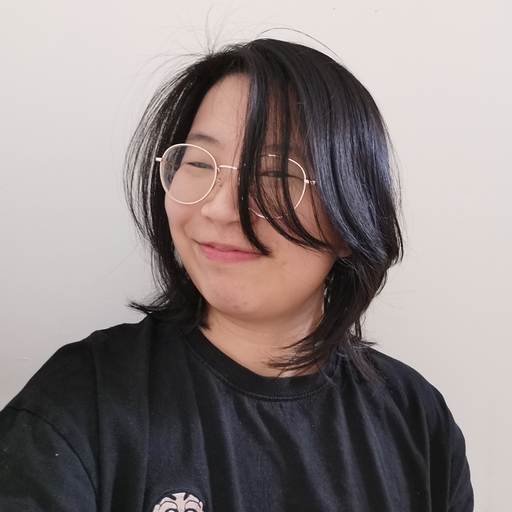It’s about an hour to doors opening, and we’re realising we may need more devices to run games on. Our team scrambles to send Discord DMs to fellow developers and new friends, asking for spare Windows laptops, controllers and headphones. The Woolies delivery person is ringing the doorbell for our delivery of food and drinks that need to be sorted. An attendee who mistook the event time calls about being lost as we’re (a team of 2) pushing around 20+ pieces of furniture.
The above is an excerpt of what it’s been like running small indie games community events, and we’re sure many others would relate. It can be hectic!
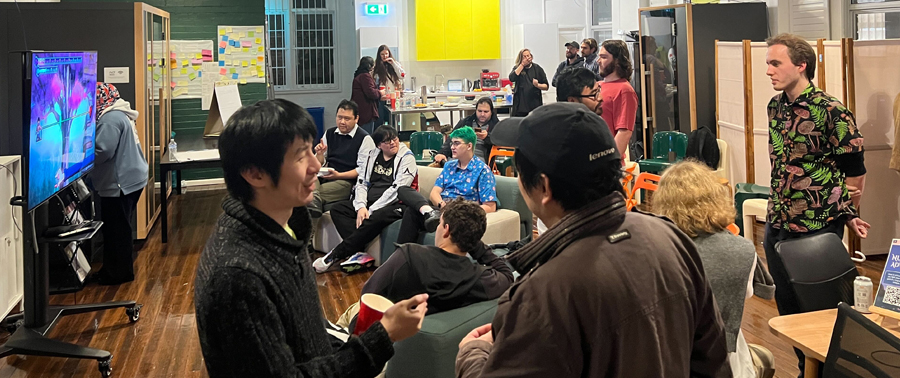
Overshadowed by larger, commercial events or conventions like the likes of PAX, SXSW, DreamHack, GamesExpo and more, these smaller events are often overlooked in their importance to the local indie games “ecosystem”. Their role is to bring together developers, players and games, ensuring game-makers stay in-touch with the human-side of their creative processes. In a fast-paced, profit-driven world, it’s easy to lose sight of these events that exist as the space for genuine connections to be made.
Above all, they’re made possible by people who love games and the people who make them. So, we’re sharing some of the things we’ve learnt to help anyone passionate about the community spirit of indie games, and hopefully inspiring those keen to start something in their local area!
WDYM by community event?
Firstly, by community events in this blog we mean small (30-80 people or less) and regularly recurring events. Game developers meet up, whether in-person or online, and are likely to showcase their upcoming games, get feedback, and some exposure for their projects. These are free or cheap to attend, to make the event accessible to more people. Examples are our own WIP Nights and Games Exchanges. Others around Australia are the regular IGDA meetups (Melbourne and Sydney’s Beer N Pixels, and IGDA chapters of other states), Serenade Games’ showcases (NSW), Waypoint (NSW), Sabbatical Gallery’s (VIC) variety of events, Squiggly River’s (QLD) meetups and more!
For a full list of cool things happening around Australia, we recommend saving this games events calendar and a list we’ll be making in a future blog soon! They may vary in format or theme, but essentially they are small events for game developers to get together, run by folks who do it in-kind.
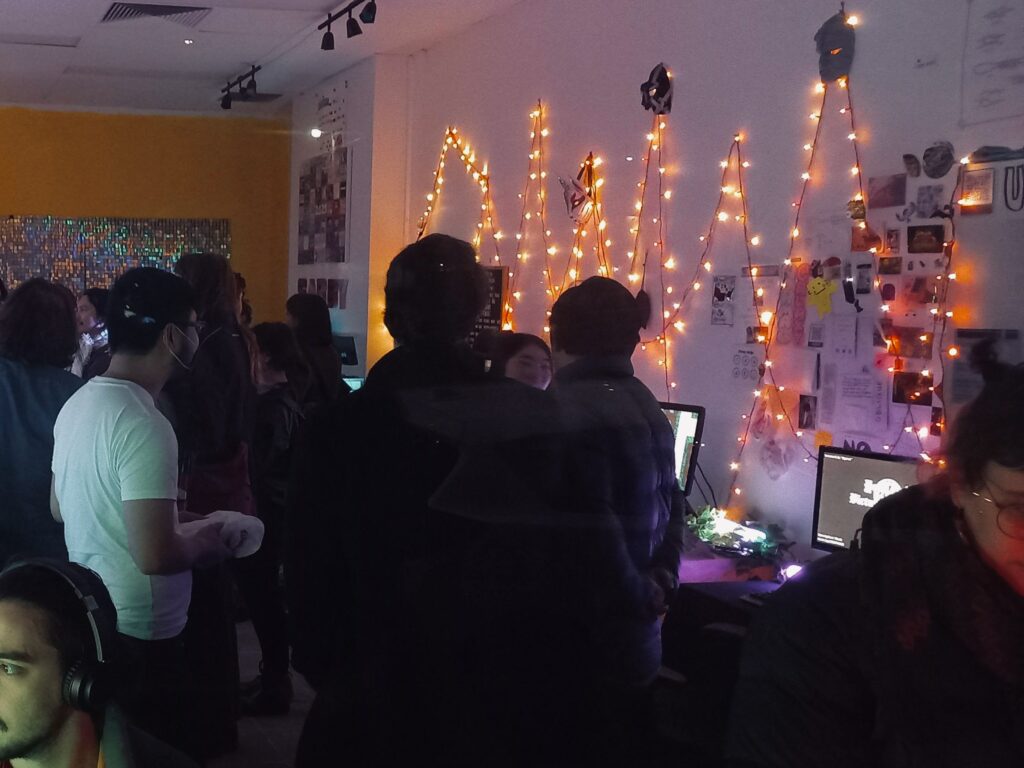
Setting goals in mind
Step one, every good event should have a goal in mind. Whether it’s to platform underrepresented game developers, or to provide space for feedback, having goals for your event is an essential step to planning an event. These do not need to be strictly defined as part of a marketing strategy, but something loosely in-mind will help steer decisions and make sure everyone is on the same page.
As a simple example, if your goal is to platform game developers from regional areas, this may lead to decisions surrounding whose games are showcased, alongside logistical plans to make sure the devs can attend the event. In addition, these goals will help with distinguishing your event from another that may already exist!
Setting the vibes
The atmosphere of your event is enigmatic and intangible, but thinking about it before kicking off your event may lead to tangible decisions and plans. For example, something we wanted to resolve at WIP nights was reducing the initial ice surrounding conversations between strangers, especially when playtesting stations are occupied and people are waiting for their turn. One solution was the short talks by the game developers who are showcasing kicking off at the beginning, so that everyone is familiar with the games and have an immediate topic to discuss with each other.
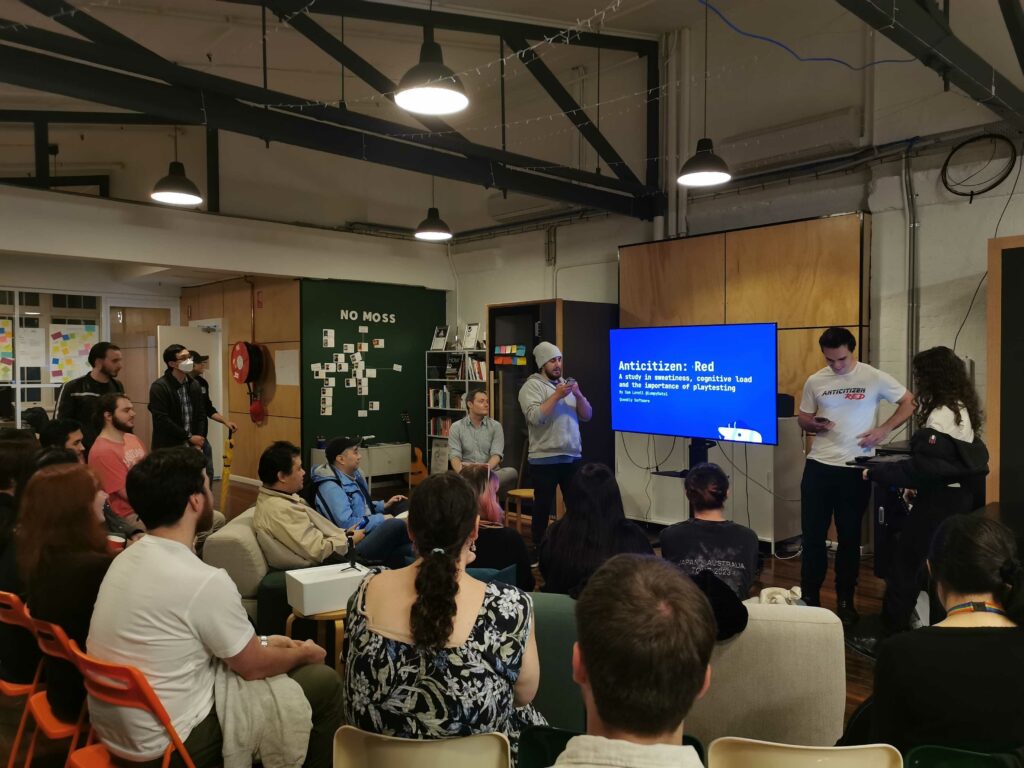
We’ve found that this helps ease people into conversations with each other, making the entire event more relaxed and without the nervous energy that comes with being in a creative field. AKA you don’t have to just talk about yourself and your projects!
We’ve also trialled with little initiatives such as ice breaker prompts in the form of paper stars and zines that showcase all the games on during the night. These help with any idle time between waiting for the chance to play the games, and for the people that might take a while to find the courage to chat with strangers. These ideas wouldn’t have emerged without thinking about how we wanted our WIP Nights to feel and be welcoming and relaxed!
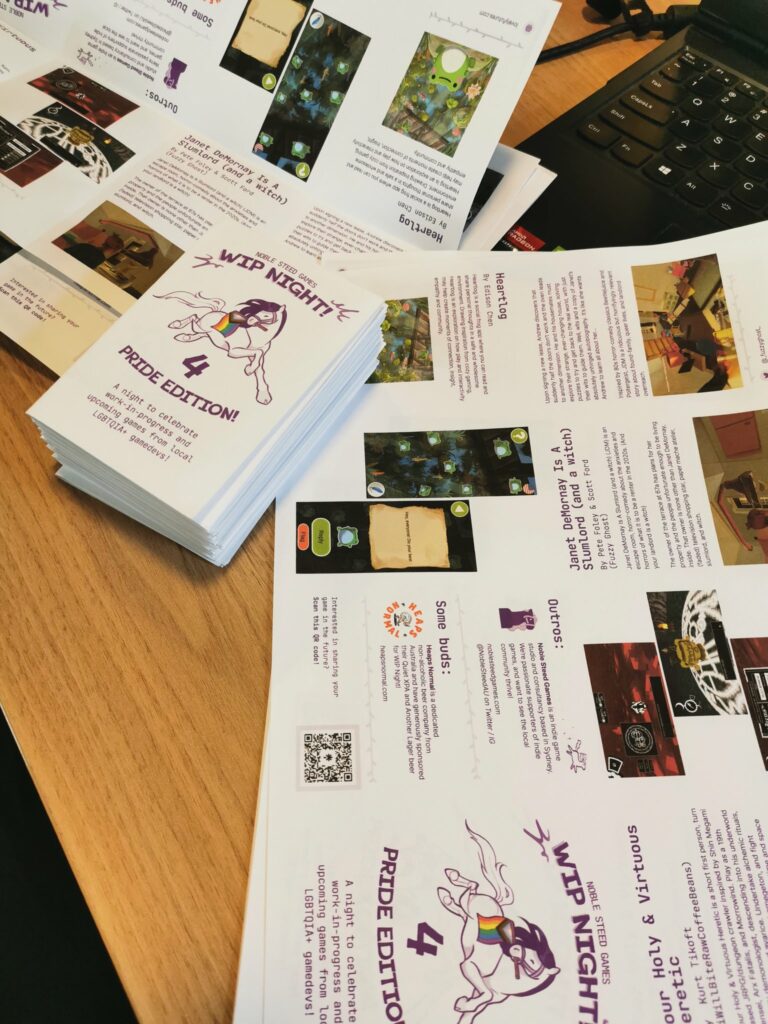
Marketing and event identity
Onto some more business-y speak, giving some thoughts around your event’s identity will help it stand out and remain memorable to people. Technically, all that we’ve spoken about comes under marketing your event as a whole, but an obvious aspect of your event is the visuals associated with it! This means any key art and design elements that you’ll be using for promoting the event, as well as in any collateral throughout it.
Thinking ahead about how you’d like to visually represent your event will help save time when making all the assets you need. With the nature of community events, it’s likely you’ll be taking the role of event planner, emcee and graphic designer all at once, so establishing this ahead of time will save you future headaches, especially if you’re doing recurring events. For our WIP Nights, we’ve made several templates of the same WIP horsey, using it as our key graphic for social posts, slide decks, zines and other print material. We’ll need to refresh it eventually, but it’s served us well for the past 5 events!
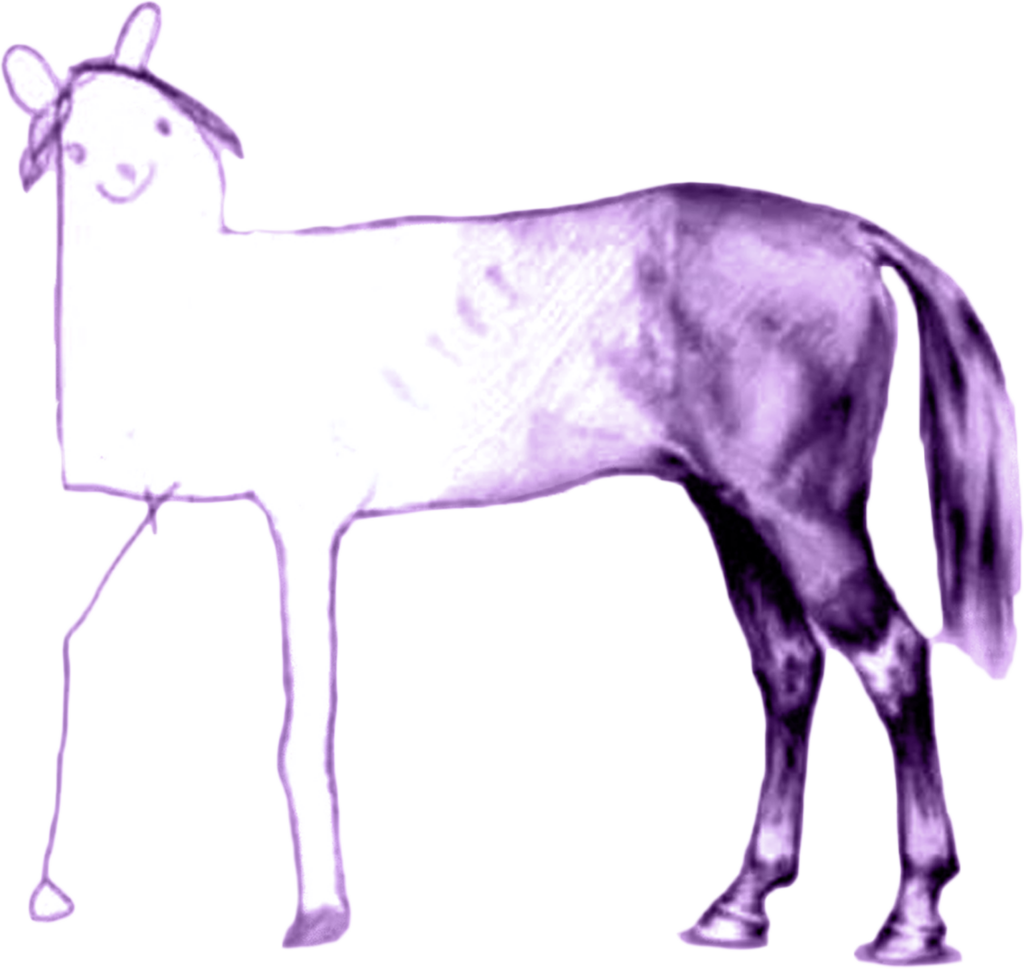
WIP horsey, truly an icon
Budgeting for an event (and asking for things in kind)
Most community events are run without the funding to pay for space, equipment, catering and manpower, often relying on the generosity of people to lend things needed for an event. A lot of unpaid labour goes into these events, too!
That said, it’s possible to budget effectively around your means, alongside asking for things in-kind. This may take some time, but we’ve found that doing a bit of research into potential sponsors and reaching out to people earnestly works. Most small businesses are regularly interested in local events, and if you focus on establishing similarity between your events’ audiences and how the event would benefit them, your chances of success would increase. The moral is: it doesn’t hurt to ask!
As a quick break down, here’s some of the things necessary to budget for when running a physical event:
Location
One of the most important aspects of any event, and also one of the most costly! We’re lucky to be able to use our office space for events, but it isn’t impossible to figure something out within your means. Here are some ideas:
- Reach out to your local library about organising an event with them
- Investigate co-working spaces who might offer spaces in-kind (Shoutout to Game Plus)
- Reach out to universities with game development courses
- Consider reaching out to restaurants/bars/function spaces for in-kind venue hire (Eg. Fortress Melbourne/Sydney)
Pro-tip: Make sure to accommodate for bump-in and out times!
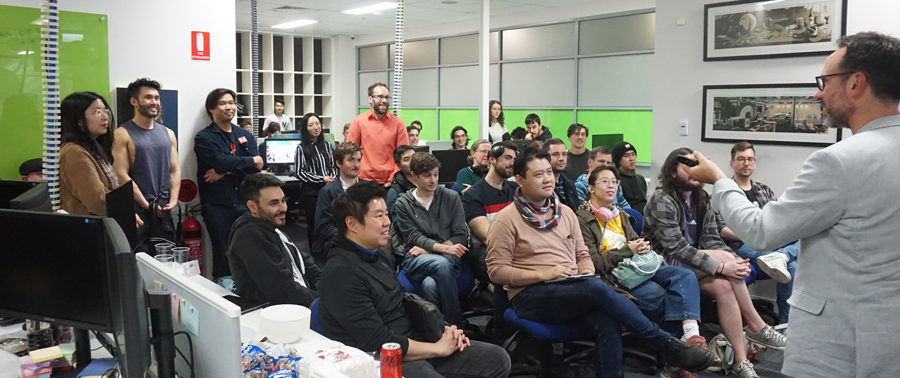
Equipment
If you’re showcasing games, you might need additional equipment such as monitors, keyboards, mice, headphones and controllers. In addition, you might need additional tech in the form of various cables, clickers, mics and more, depending on what you’re doing. The easiest way to overcome these is to have devs bring their own equipment, look for sponsors, or ask friends from the community.
Catering
Entirely optional, but a powerful attractor to events. Offering some light food and drinks is possible under a tight budget, if you’re willing to prep and clean up on your own. For our events, we’ve generally bought grocery items and unpacked them onto dishes for the night. Like many other things, it’s not impossible to ask and receive, with several small and like-minded businesses keen to sponsor some items in-kind.
Manpower
The number of people available to help with setup is important to consider for any event. Make sure you’ve shared bump-in and out details with everyone who’ll be there and show them your appreciation, especially if they are volunteering their time and energy for your event!
Excitingly, in Australia, there exists government grants for event funding that might be worthwhile pursuing! Check out this list of grants available for events and festivals in Australia:
- Screen Australia’s game festivals and events fund
- City of Sydney Festivals and events fund (NSW)
- Local Activation Grant (WA)
- Community Benefits Fund (NT)
- Any grants from your local council
Cool words from cool people
“Having a one page worksheet where you just fill in the details of the events and what’s required for each event makes the planning so much easier, because you can refer to it quickly when looking back, briefing other people for the event, and keeping everyone on the same page.
Don’t forget about recordings – audio and visual! There’s so many things happening during an event so the last thing you’d be doing is taking photos during the event. Don’t get me wrong, UGC is fantastic for engagement, but looking back I would have preferred to have proper photos and videos of our past events.
I tend to get bored easily, especially because working in Ops can sometimes be monotonous, so having an opportunity to organise events breaks up my work routine and keeps me engaged.”
Christine Ager, Noble Steed Games’ Ops coordinator

“Learn about the communities out there and support other events that are happening! When I first started learning about the scene, I would go to every single thing I could. That’s how we know if there is something that already exists out there that we can support or if there is space for something new to grow. It’s how we meet collaborators, discover venues, become inspired by other collectives and find out about cool games. Also look outside the games community, connect with people from film, music, art and tech and don’t be afraid to reach out to the media!”
George Mak, Serenade Games
“Some short tips and musings I have when it comes to events!
- Plan for any outcomes – if something can go wrong, it will.
- Invest in reusable resources.
- Treat your community like users of a game or customers; if you cater to their desires, you will see it reflected in those returning or bringing new people along.
My favourite part of running an event is honestly finishing it and the satisfaction of getting like-minded people in a room and mingling. I got into game development because I cared about bringing people together, and running Waypoint is just another aspect of doing that. My least favourite is marketing. To run events, you need an extroverted spirit and the ability to captivate and convince people that coming along is a worthy time investment. You need to do this constantly, and it does drain your social battery.
Ryan Penning, Waypoint
Conclusion
Running community events is hard work, and one that’s often paid in gratitude only. Still, we do it for the community spirit of making games, and the joy of bringing like-minded people together. This blog only scratches the surface of what goes into making small events work, but I hope it has shed a bit of light on an aspect of game development that’s often overlooked. May it inspire you to do something within your own community!
PS. If you’re after a guide for game developers attending game development events, that’s coming soon!
We hope you enjoyed reading this! Have a question or want to chat more about game development? Reach out to us!
Other places you can find us:
- Our other game development resources
- Join our Discord server
